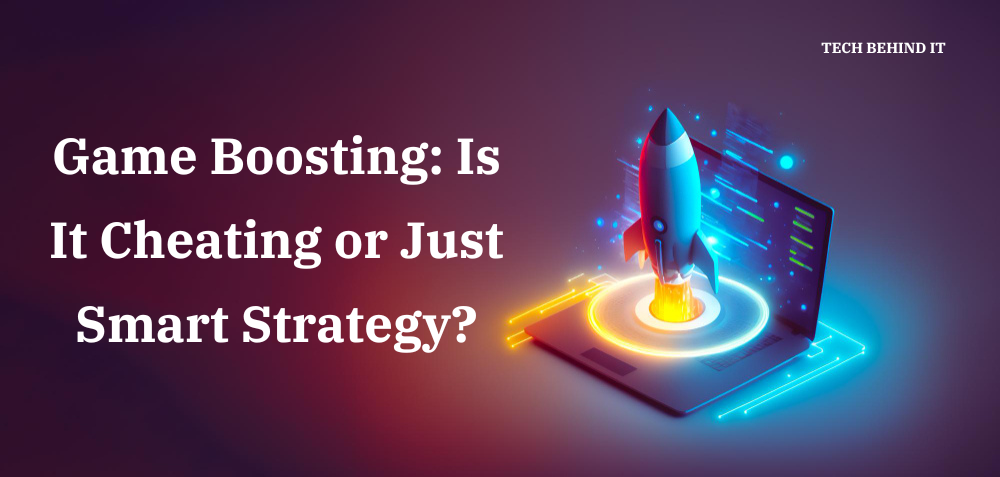Game Boosting: Is It Cheating or Just Smart Strategy?
- 1 The Case for Game Boosting as Cheating
- 1.1 Violates Spirit of Earning Rewards
- 1.2 Creates Imbalance in Multiplayer
- 1.3 Devalues Accomplishments
- 1.4 Encourages Real Money Transactions
- 2 Arguments for Game Boosting as a Legitimate Strategy
- 2.1 Maximizes Enjoyment of High-Level Content
- 2.2 Better Than Endlessly Grinding
- 2.3 Doesn’t Require Exploits
- 2.4 Creates Jobs and Economy
- 2.5 Makes Friends and Mentors
- 2.6 Striking a Balance
- 3 Future of Game Boosting
- 4 Closing Thoughts
Game boosting, the practice of paying other players to level up your character or advance you to higher tiers in competitive games, has become increasingly common in recent years. However, the gaming community is divided on whether this is cheating or just using available resources to enjoy high-level content better.
In this article, we’ll examine the arguments on both sides. For a comprehensive understanding and perhaps a first-hand look at game-boosting services, consider exploring Leprestore’s offerings.
The Case for Game Boosting as Cheating
The most straightforward argument against game advancing is that it provides an unfair advantage to players who can pay their way to top tiers and gear. Here are some key points made by critics of uplifting services:
Violates Spirit of Earning Rewards
Most games are designed so that players earn achievements, levels, and gear through time invested and skills developed. Boosting allows players to bypass this core progression system by eschewing the work and instead paying for the rewards. Some see this as violating the spirit and integrity of earning one’s place in the game.
Creates Imbalance in Multiplayer
In competitive multiplayer games, boosting can introduce players to high-skill brackets they haven’t earned through practice and ability. This can create an imbalance where elevated players drag down teams or ruin the experience for others at that tier.
Devalues Accomplishments
For players who advance legitimately, uplifting can make their accomplishments feel less meaningful. It’s disheartening to know that others have paid to attain what you’ve worked hard to achieve.
Encourages Real Money Transactions
Some see boosting as just the tip of the iceberg when it comes to players paying real money for in-game advantages. Allowing advancing normalizes and encourages the broader practice of players spending money to get ahead, which may have many downsides for game economies and design.
Arguments for Game Boosting as a Legitimate Strategy
While elevating undoubtedly causes controversy, counterarguments exist in its defence as an intelligent strategy for some players. Here are some of the expected points made by supporters of boosting services:
Maximizes Enjoyment of High-Level Content
For busy players with limited time, uplifting is a way to experience end-game content, dungeons, and raids that would otherwise be inaccessible. Since this is content that game developers have created, some argue that boosting provides a valid path for players to see it.
Better Than Endlessly Grinding
Not everyone grills endless hours to reach higher tiers or get the best gear. For these players, advancing can preserve the fun factor by letting them bypass the tedium and enjoy the parts of the game they prefer.
Doesn’t Require Exploits
Unlike hacking or exploiting bugs, uplifting utilizes facilities and systems built into the game by designers. Since it doesn’t require circumventing rules or mechanics, some view boosting more as a player option rather than outright cheating.
Creates Jobs and Economy
The demand for boosting has led to new jobs for expert players who get paid to group with clients. This economy generates income for boosters and creates more significant incentives to help others.
Makes Friends and Mentors
Boosting connects new players with experienced veterans of the game. These can become friendships, mentors, and future group mates, enhancing social connections.
Striking a Balance
There are good-faith arguments on both sides of the advancing debate, which underscores that there are no easy or universal answers. Perhaps the best approach is for game developers to decide if and how to allow uplifting services on a case-by-case basis per game. Through balancing factors like game integrity, fairness, enjoyment, and economics, they can hopefully create systems that work for their vision and community.
Future of Game Boosting
- More acceptance: As boosting becomes more mainstream, there will likely be greater acceptance of it as a valid play style. Services will advertise openly, and elevating may move into normalized microtransactions.
- Regulations: If boosting is viewed as enabling “pay to win” too extensively, we may see regulations, especially around professional esports. Cracking down on paid rank advancement could be mandated.
- Design changes: Some games may use boost blocks, nontradeable rewards, or binding items to characters to discourage advancing services. However, others may facilitate it via incorporated mentor programs and account gifting.
- Prohibition challenges: Completely prohibiting real-money trades of all kinds can be challenging. Determined players utilize grey market channels regardless of bans. So, incorporating and regulating boosts may manage the issue better than outright bans.
- Player feedback: To strike the right balance, designers must keep taking player feedback about the impacts of uplifting into account in their decisions and anti-cheat measures. Ongoing adjustments guided by community input will enable better solutions.
Closing Thoughts
For players, moderation may be essential. It may be a reasonable strategy if boosting in moderation enables you to enjoy the content you’d otherwise miss. However, overusing boosts to substitute for participation can diminish rewards and community connections. As with most divisive issues, a nuanced middle ground produces the healthiest outcomes.
In closing, game advancing represents a complex issue tied to the ethics of achievement, the economics of services, and differing play styles. By understanding the perspectives on both sides, we can have informed conversations and policies around this emerging trend in gaming.
The above analysis shows thoughtful points on all sides of the debate rather than a simple black-and-white verdict on the practice. With care, compromise and communication, developers, players, and communities can find an optimal role for boosting – one that balances accessibility and integrity in their shared passion for gaming.



















